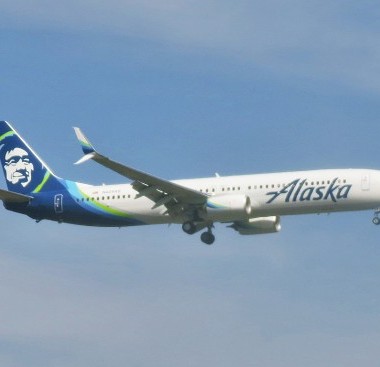Airlines will hike ticket prices to pay for costly sustainable fuel
Developing more sustainable aviation fuel is key to reducing the airline industry’s carbon footprint — but customers will end up footing the bill in airfare prices, according to Willie Walsh, director general of the International Air Transport Association.
Speaking on Wednesday at a panel at the Bloomberg New Economy Gateway Europe conference outside Dublin, Walsh said that widespread adoption of sustainable fuels will account for about 65% of the reduction needed for the industry to reach its stated goal of net zero emissions by 2050.

Yet as the fuels cost many multiples more than the standard kerosene now used to power jets, very little is being produced, and it’s not clear who will pay. The IATA estimates that the worldwide tab for decarbonizing aviation will top $1 trillion.
“That will have to be borne by consumers, there’s just no way around it,” Walsh said.
At the same time, “getting the right policy in place is important,” he added. Walsh lauded the US approach of using incentives to stimulate production, and criticized the European strategy of using a regulatory “stick.”
Higher ticket prices will be required to fund the new initiatives, Walsh added. The International Council on Clean Transportation predicts sustainability measures will drive up ticket prices by 22% by 2050 compared to where they would otherwise stand, said Rachel Muncrief, deputy director of the group, which provides technical analysis to environmental regulators.
UK industry group Sustainable Aviation has cautioned that although the number of airline travelers will rise to almost 250 million by 2050, the cost of decarbonizing aviation will “inevitably reduce passenger demand.” The group calculated that about 14% of an anticipated reduction in emissions will come from fewer fliers.
The transition to sustainable fuels also brings other challenges. While SAFs have the advantage of being usable by current-generation aircraft engines and existing airport infrastructure, biomass-based fuels are the only ones being produced now, and in limited quantities. There is also a lack of agricultural land for growing the ingredients.
“Not all biomass is created equal,” Muncrief said. While so-called “e-kerosene” is a cleaner option, for example, it also requires more time to develop.
Hydrogen-based fuels are seen as “the silver bullet,” but at the moment there aren’t enough yet available, said Rachael Everard, sustainability chief at jet-engine maker Rolls-Royce Holdings Plc. To come up with a unified energy infrastructure for the airline industry, Everard said that all players, including governments, need to be aligned.
Similar Stories

Lufthansa Cargo and Maersk launch cooperation to support decarbonization of airfreight
View ArticlePort Authority of New York and New Jersey airports see spookily spectacular surge in October
Port of New York and New Jersey surpasses 700,000 TEUs for eighth consecutive month
View Article
airBaltic Cargo partners with cargo.one to accelerate and enhance its digital sales
View Article
First circular pioneer establishes presence at the NextGen Demo site in the Antwerp port
View Article
Kalmar and Elonroad partner to pilot dynamic EV charging
View Article
Strategic Marine increases presence in Korea’s offshore wind industry with Yeosu Ocean’s contract for new Stratcat 27
View ArticleGet the most up-to-date trending news!
SubscribeIndustry updates and weekly newsletter direct to your inbox!





